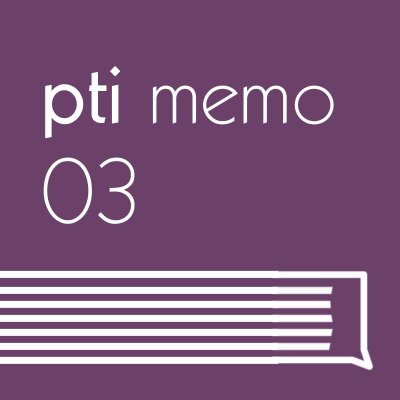

Bergman’s lecture introduced the C3 Dataset on “Strong vs Weak Governments and the Challenge of Economic Reforms.” Having hand-coded over twelve years, this dataset covers inaugural government declarations across 13 Western European parliamentary democracies between 1979 and 2017. It focuses specifically on socio-economic reform measures (labour, welfare, taxation and economic regulation) and provides a systematic comparison of how governments articulate concrete policy intentions at the start of their term.
The units of analysis in this research are government declarations, defined as inaugural speeches typically delivered by the Prime Minister, outlining the incoming administration’s policy agendas. Unlike party manifestos or coalition agreements, government declarations are agreed upon by the governing parties, time-sensitive and universally available across different parliamentary systems. This makes them particularly valuable for comparative research, offering a "costly" and "credible" signal of government intent under institutional and temporal constraints.
The study poses the following question: why do some governments commit more than others? Traditional approaches, such as coalition compromise or ministerial autonomy theory, fall short of explaining this variation. Instead, Bergman introduced the concept of logrolling, suggesting that ideologically diverse coalition partners trade off policy priorities across issue areas, resulting in more numerous and diverse reform measures. This reflects both time constraints and the complexity of high-dimensional bargaining.
The key findings of Bergman and colleagues supported the logrolling hypothesis: greater ideological conflict among coalition partners correlates with a significant increase in both the number and scope of specific reform commitments. Notably, governments with high internal disagreement introduce nearly twice as many reform measures as more ideologically cohesive ones. This pattern contrasts with data from the Comparative Agendas Project (CAP), which emphasises salience over specificity and cannot fully capture the negotiated nature of commitments.
In conclusion, Bergman’s lecture highlighted how coalition dynamics and ideological fragmentation shape the concrete content of early government commitments. Government declarations, long under-studied, emerge as a valuable lens into policy-making. Looking forward, future research could expand beyond the socio-economic domain to assess how logrolling operates on cultural or environmental issues, and to what extent prime ministerial influence or status quo policy positions shape the declarative ambitions of incoming cabinets.
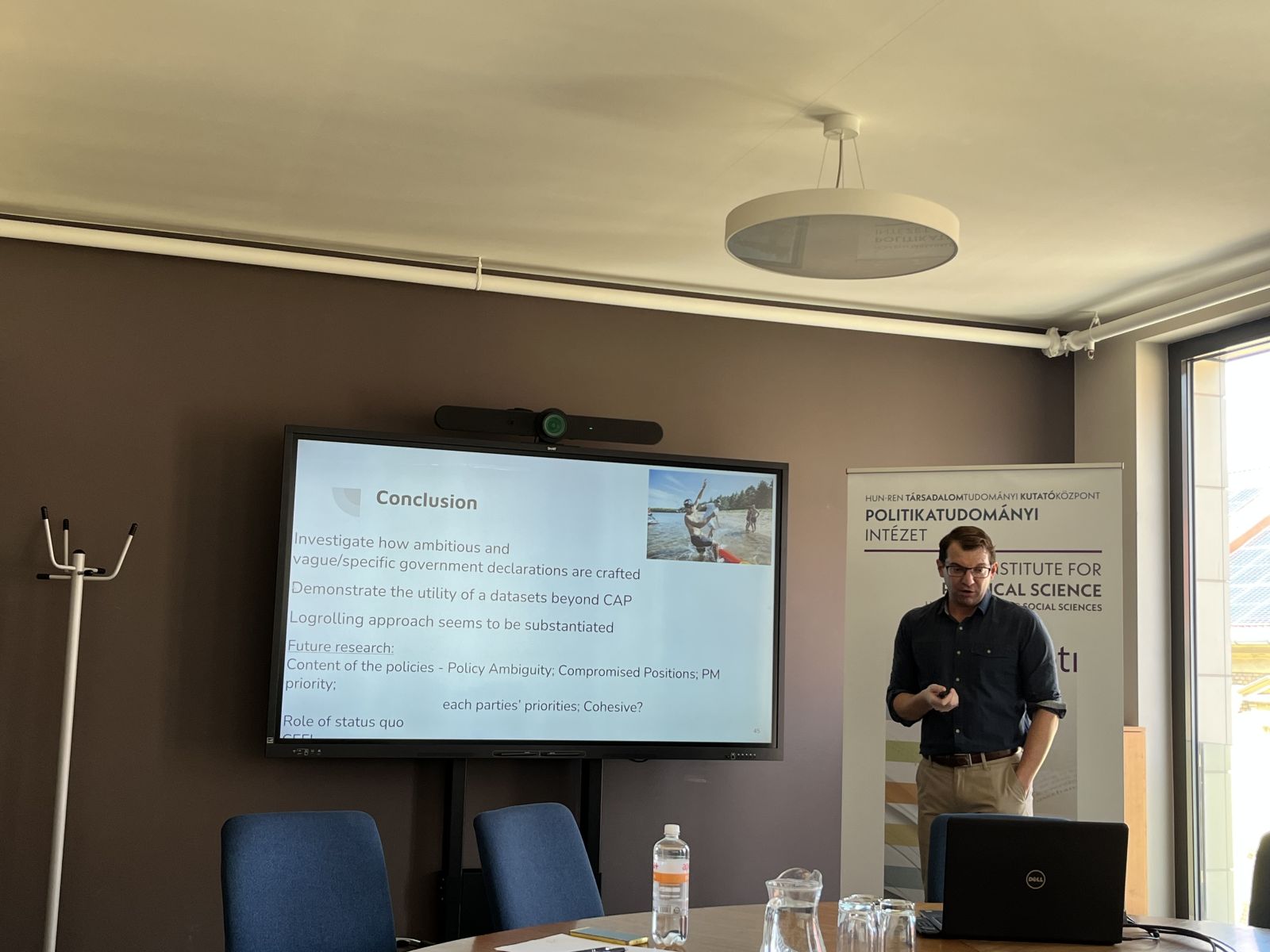
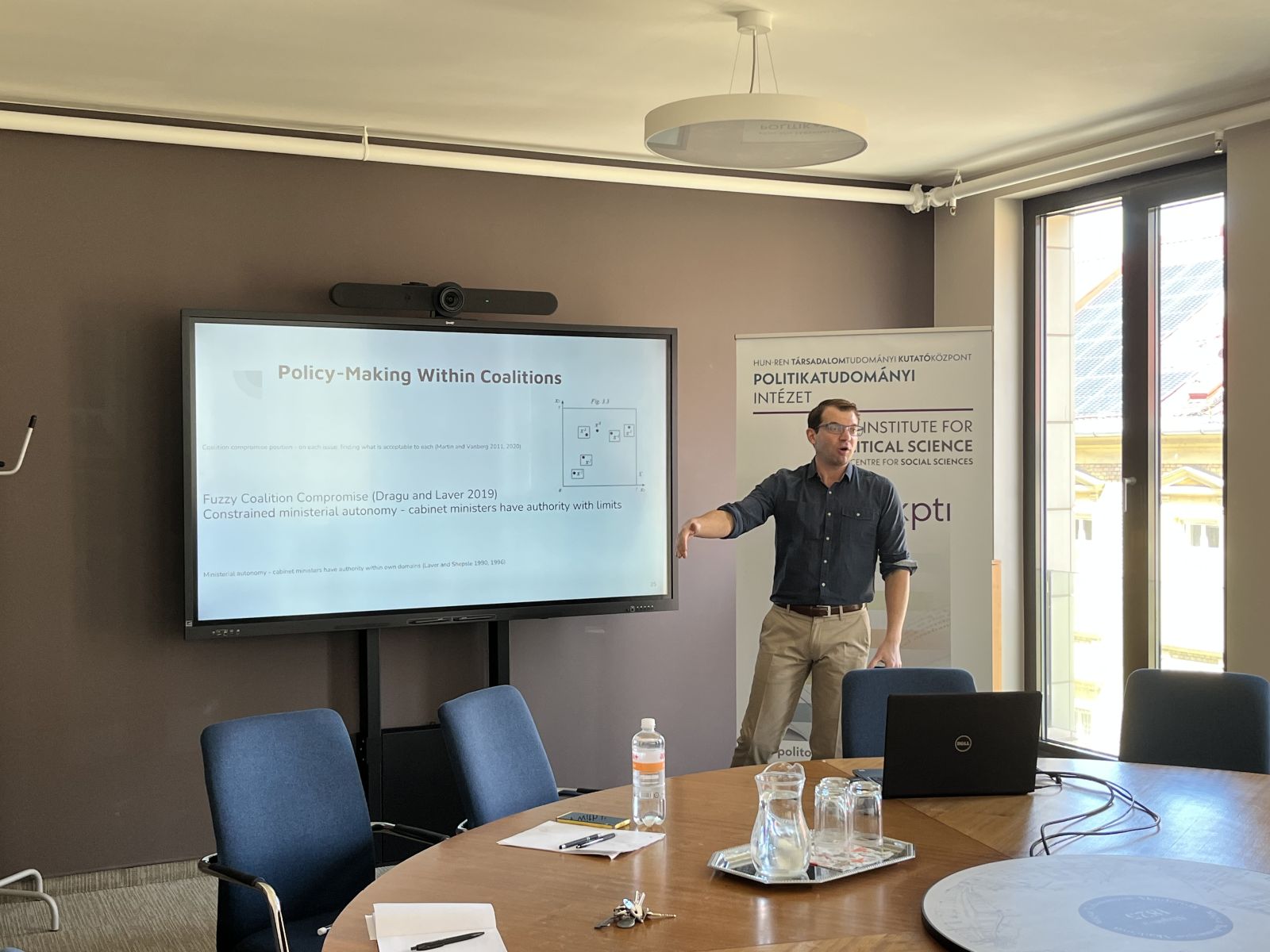
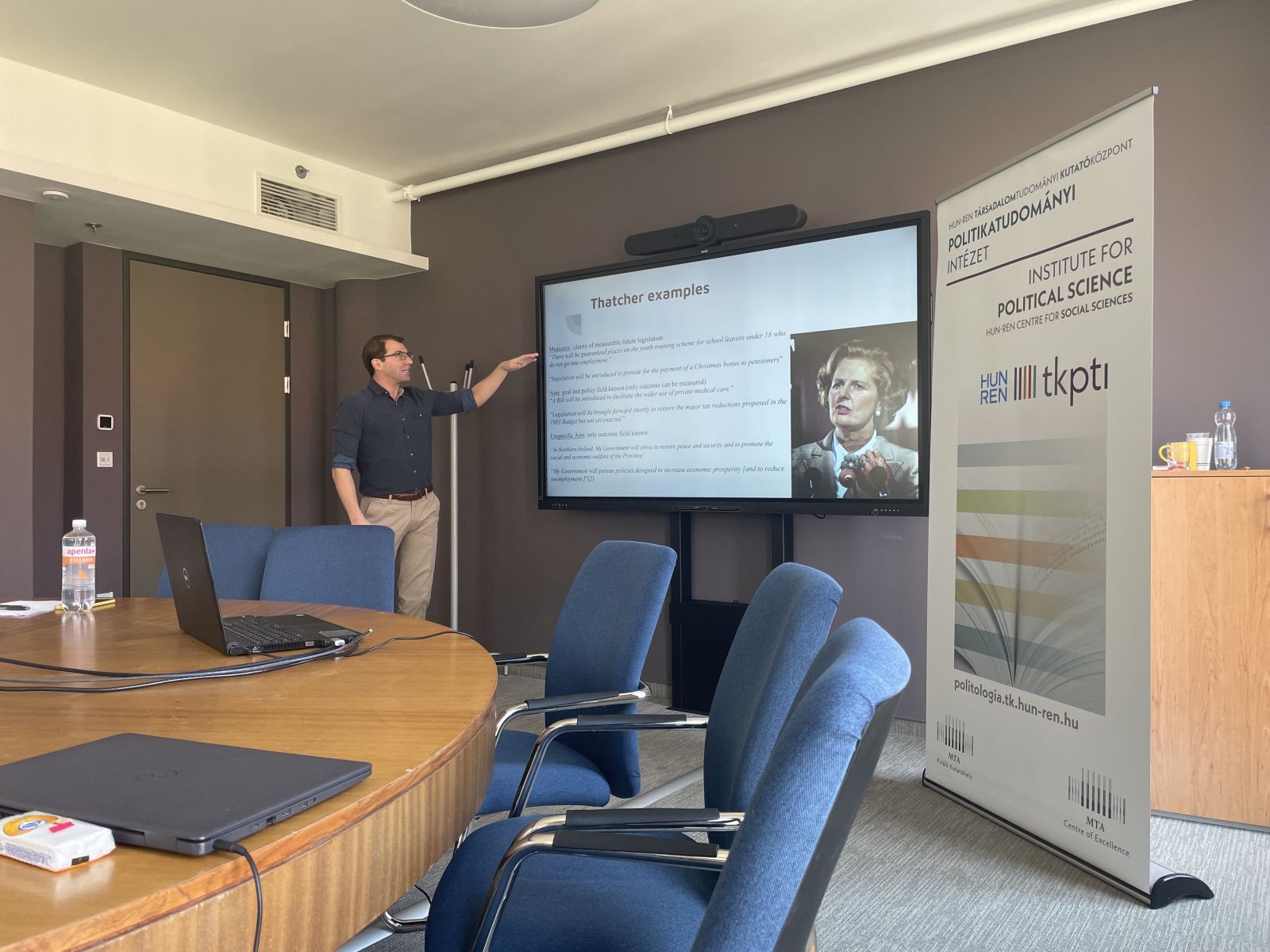
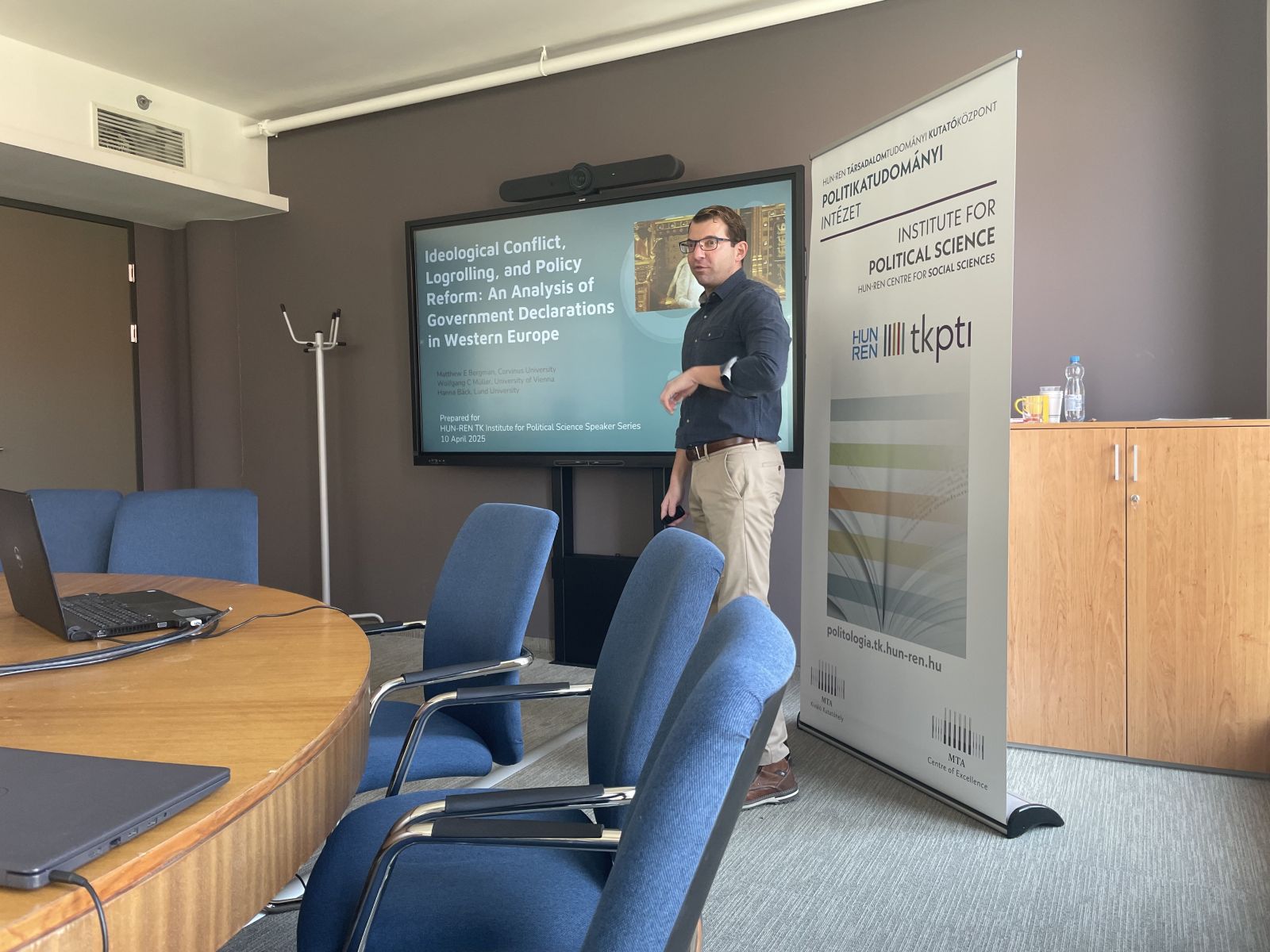
As part of the pti memo series, we publish short blog posts about the Speaker Series events of the HUN-REN CSS Institute for Political Science, expanding the accessibility of fresh and socially relevant political science research. You can find more information about the Institute’s upcoming events here.
Author of the blog post: Dominik Rákos
Date of publication: 10 April 2025
